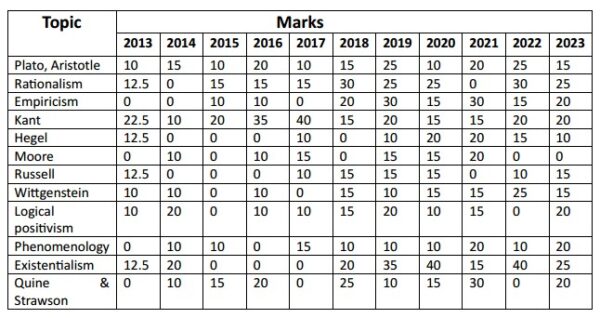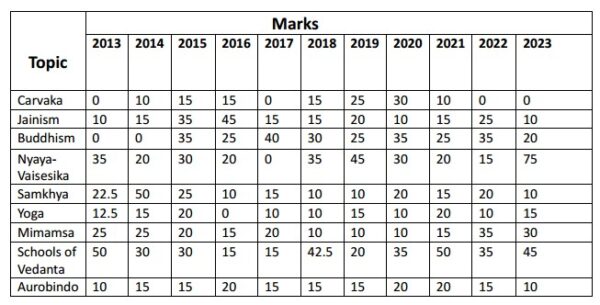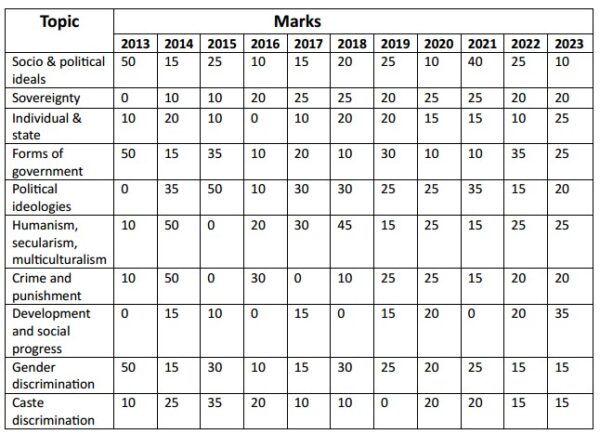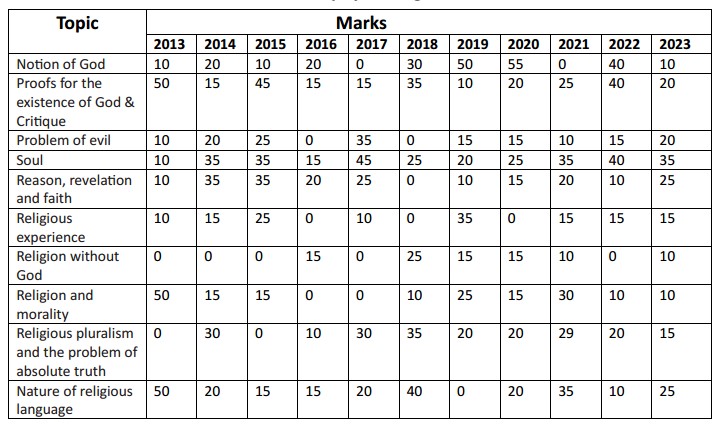DI
dARSHAN IAS
STRATEGY FOR PHILOSOPHY OPTIONAL
As an optional subject, Philosophy has many advantages for candidates which explains its popularity among other subjects so it has become popular for UPSC CSE and State PSC because of its shortest syllabus out of all the optional subjects offered by the UPSC and State PSC.
Philosophy being highest scoring subject (7%) is chosen by many of the candidates for the civil services exam. Because of its great scoring percentage and short syllabus it has become the most preferred optional subject among the candidates of UPSC CSE.
How to prepare for Philosophy optional
In order to gain good marks in Philosophy optional the candidate must practice writing answers of previous years’ questions, which makes a candidate aware of pattern of exam and the type of questions asked in the exam, also the candidate is required to practice on time management according to the weightage of the question which is utmost important. The more time you will give to study and revise and practice the questions the more you will be closer to the good marks. For practice questions and answers, Test series can help you in this regard because philosophy is a static subject and questions are asked repeatedly.
Here we are sharing Paper wise strategy for Philosophy optional
Given are the topics and their marks given to them In this table
Paper 1 Part A, Western Philosophy.

Example questions:
- Is the relation between the Idea and the World as discussed by Plato logically consistent? Discuss Aristotle’s views regarding this and also give arguments in favor of your answer. (2018/15)
- Show how Hume’s analysis experience leaves no ground for belief in any permanent reality either physical or mental. (2017/10)
- Explain Kierkegaard’s concept of choice. How does the concept of choice in meta-ethics differ from normative ethics? Explain. (2014/20)
Paper 1 Part B, Indian Philosophy

Example questions:
- “The soul is nothing but conscious body.” What are the reasons for Carvaka in holding this view? (2017/10)
- Explain Ramanuja’s conception of God and examine the difficulties he faced in explaining the relation of God to matter and spirits. (2017/15)
- What is bondage according to Yoga philosophy? Explain the method of attaining Kaivalya in Patanjali’s Yoga sutra. (2015/20)
Paper 2 Part A
This paper again has two Parts, Part A covers Socio-Political Philosophy and Part B covers Philosophy of Religion.
Part A Socio-Political Philosophy
Part A covers Socio-Political Philosophy which is neither sociology, polity nor Philosophy but it has ideals of all of these so this paper becomes truly crucial as it helps to understand political and sociological terms at one place and helps in general studies. It covers the social and political ideals, the concept of sovereignty, forms of government, political ideologies, development and social progress, caste and gender discriminations.
Mostly students do not pay equal attention to this paper as in paper one which is harmful because this paper helps in your general papers too and consists of another 250 marks. In this paper topics are general and comprehensive. Sometimes identification of the topics and the concepts asked in the question is difficult so be careful while reading the question and writing answer of it.
It is important to not only identifying the topic or concept asked in the question but to understand what is asked from that particular topic or concept in reference of particular philosopher.

For Example:
Question is “Discuss the nature of relationship between liberty and equality.”
What Students write: What is liberty and Equality. (Wrong)
What should students write: Nature of relationship between the two. (Right)
Paper 2 Part B
Part B Philosophy of Religion
For Philosophy of religion, in the answers, you can begin the introduction with a quote or an explanation followed by the exact definition. Then the topic should be explained by linking it with other chapters. Diagrams can also be used here.
The conclusion should always be positive with a solution if needed. There should be a balanced use of paragraphs and points. In short answer type questions you need to introduce the topic and then answer the question upto the point followed by the conclusion.
Example Questions:
- State and explain the doctrines of Karma, Rebirth and Reincarnation in Hinduism. (2019/20)
- Does the concept of God entail the existence of God? Examine from the perspective of ontological argument. (2018/15)
- State and evaluate the proofs for the existence of God as propounded in Jainism. (2019/10)

